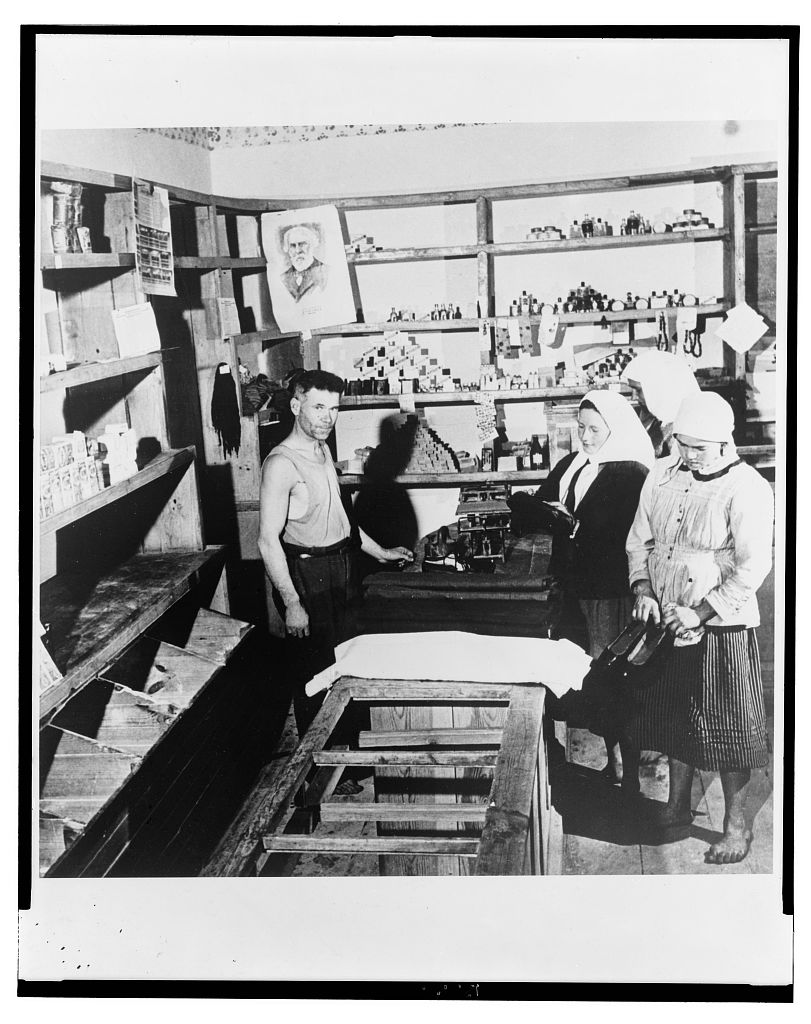One of the more curious features of the ongoing plague is the shocked response of landlords towards the assertion on the part of their tenants that they would not only be unable or unwilling to pay rent but actively want to see their property holding guts being used for bunting at the Peasantcore Spring Hoedown and Chili Cookoff.

We’ve hit an event horizon in the merie land of unabridged capitalism.
The near future employment prospects for people working in service jobs are dire. Even before shelter in place orders were issued, many businesses had already been closed by the state to prevent the spread of the virus. Unemployment for lower income workers who are already burdened or severely rent burdened means they’re extremely unlikely to be able to afford their rent, if not this month, then by next month. The forthcoming $1200 stimulus payment is just not going to cut the mustard for carrying people through the next few months despite what the Treasury Secretary might think. The immediate conflict will be over rent. This puts tenants and real estate investors at each other’s throats even as larger trends in economic fuckery are at play.
We’ve been here before.
Tensions between serf and lord, landless and landed, laboring class and gentry, union and bosses, are well known and play out in various ways in our history and literature. Even as we gain a greater perspective than our medieval forebears through the availability of news, our conflict will still be with our most immediate points of contact. For the tenant, that would be their landlord who claims the lion’s share of their income each and every month. Let’s explore the idea of a landlord as our modern incarnation of the medieval miller.

The miller and contemporary landlord hold similar positions in society. They provide an essential service (grinding of grain or providing housing) which is very difficult to obtain otherwise. For the medieval serf, the quern was both illegal to own and extremely inefficient which cemented the miller into the community. Landlords provide rental units which for many people is the only form of housing available. There are substantial financial barriers to home ownership, especially in urban areas, which provides property investors with a captive market.
Miller and landlord both are ultimately investors. Their rational self-interest lies in extracting the maximum amount of revenue from their customers. Both operate at a distinct advantage over their customers due to their monopoly on providing an essential service. This does not create a relationship where trust or affection flourishes.
Millers were generally considered to be thieves and users of false measures. This attitude continued to be expressed in song and story from some of the earliest literary sources in English up through the American colonial period. Its not difficult to find contemporary examples of similar sentiments being expressed regarding landlords. Given the diametrically opposed interests of the land owning and tenant classes friction is to be expected at the best of times. This is not the best of times.
As record numbers of people are filing for unemployment, the conflict will only grow. Already rent strike is a hashtag on twitter. A frequently shared reddit thread exposes the tensions between tenant and landlord. With the United States currently unwilling to provide sufficient income for unemployed workers this is just going to continue to blossom.
Why mention the miller?

They were often targets during food riots of the era. They were distrusted and most importantly, accessible. Its easy to forget that food riots were very common everywhere until relatively recently. The civil war saw bread riots across the South. There were riots in several American cities in 1917 due to rising food prices. The targets of ire were grocers who had raised prices sharply. The US has not seen food riots for quite some time but food insecurity is high and now housing will be added as a flashpoint for widespread discontent.
As seen in the linked reddit thread above, the amount of contempt between landlords and tenants is considerable. Rentable properties have been very good investments for passive income as rent has been increasing well ahead of inflation over the past 60 years. The past two decades have seen a massive increase in value for even marginal properties in urban areas as rapid population growth in urban centers has widely outstripped supply. As a result the percentage of tenants who are rent burdened or heavily rent burdened (paying over 30% and 50% of their income respectively) has exploded. The reasons for this increase are not the fault of any individual landlord, but they have become the human face for an exploitive system by participating in the front lines.
The landlords participating in reddit communities like /r/realestateinvesting and /r/landlord most likely are smaller property owners as larger landlords, corporations, and institutional investors have lawyers to answer their questions. They quite likely are as they present themselves, small investors caught between tenants who provide the entirety of their income and their own masters, the mortgage lenders.
When the torches and pitchforks start getting handed out, this is not going to make them any less of a target. They invested and participated in an industry where the cost of a human necessity was leveraged upwards so far that the majority of their customers were living month to month and were not in a position to save any significant amount of money for an emergency. In a crisis like this one where a large number of tenants are no longer able to work and have no savings, its going to very quickly come to a head.
This is not likely to be pretty. If tenants default without support, there will be a mass of evictions once cities allow the housing courts to open up again, dumping huge numbers of people into the streets. If there’s a rent strike, smaller real estate investors are likely to default on their mortgages which means the institutional investors will snap them up and continue to consolidate their holdings on the US rental market. The tenants will have the pleasure of dragging their landlords into bankruptcy with them.
A debt jubilee is as unlikely as widespread temporary income support from the federal government. Its a shitshow in the making and we’re cruising right into it.





